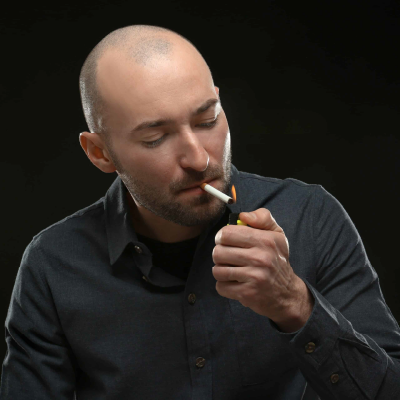What is Minoxidil ?
Smoking is a habit that has far-reaching effects on overall health, and it can also significantly influence the success of medical procedures. When it comes to hair transplant procedures, smoking can have adverse effects on the outcome. In this comprehensive guide, we will delve into the detrimental impact of smoking on hair transplant results and why quitting or abstaining from smoking is crucial for achieving optimal outcomes.
1. Understanding the Link: Smoking and Hair Transplants
Smoking, particularly the nicotine in tobacco, constricts blood vessels and impairs blood circulation. This reduced blood flow can compromise the healing process and the success of graft survival in hair transplant procedures.
2. Delayed Healing and Graft Survival
Nicotine hinders the body’s ability to heal efficiently. In the context of a hair transplant, this can lead to delayed healing at the donor and recipient sites, resulting in extended recovery periods and potentially lower graft survival rates.
3. Reduced Blood Supply to the Scalp
Healthy hair growth relies on an adequate blood supply to the scalp, providing oxygen and essential nutrients. Smoking’s impact on blood circulation can hinder these vital elements, leading to suboptimal hair growth and weaker graft integration.
4. Increased Risk of Complications
Smoking compromises the immune system’s ability to fight infections. This increases the risk of post-operative complications, such as infections or scarring, which can negatively affect the final appearance of the transplanted hair.

5. Subpar Aesthetic Results
The goal of a hair transplant is to achieve natural-looking results. Smoking’s impact on graft survival and healing can result in uneven growth, patchiness, or a less desirable aesthetic outcome.
6. Preparing for a Successful Hair Transplant
If you’re a smoker considering a hair transplant, it’s strongly recommended to quit smoking or at least abstain for a significant period before and after the procedure. Consult your surgeon for guidance on the optimal timeframe for smoking cessation.
7. The Benefits of Quitting Smoking
Quitting smoking enhances overall health and significantly improves blood circulation and oxygen delivery. This, in turn, supports faster healing, better graft survival rates, and ultimately, more successful hair transplant outcomes.
Conclusion
Smoking has a profound impact on hair transplant outcomes, affecting graft survival, healing, and overall results. If you’re considering a hair transplant, it’s crucial to either quit smoking or refrain from it before and after the procedure. The decision to quit smoking not only enhances your chances of achieving optimal hair transplant results but also contributes to your overall well-being and health. Consult your surgeon for personalized guidance and embark on your hair restoration journey with the best chances for success.
Read more : Androgenic lopecia
